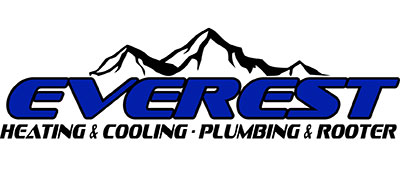
If you’re uncertain whether your Lansing house has unhealthy indoor air quality (IAQ), it probably does.
We are indoors a lot. In fact, we’re in a building up to 90% of the time, according to the U.S. Environmental Protection Agency. And the air inside residences could be 2–5 times more polluted than outdoors, which could create long-term health problems.
Most Common Origins of Bad IAQ
We’ve made a list of the most frequent causes of poor IAQ, the problems they make and how you can fix these indoor air pollutants. If you’re troubled by the air inside your home, we suggest chatting with a professional like Everest Heating & Cooling about which options are ideal for your home.
Volatile Organic Compounds
Volatile organic compounds, or VOCs, are chemicals emitted from everyday household things.
They’re found in paint and stains along with:
- Furniture
- Carpet
- Building materials
- Cleaning products
- Cosmetics
- Air fresheners
- Candles
When these chemicals accumulate in your home, they might irritate your eyes, nose and throat. They can also create headaches and nausea. Regardless of whether your residence is in a rural or industrial space, an EPA study found indoor levels of these fumes can be 2–5 times higher than the air outside your home.
Always follow the manufacturer’s guidelines when painting or cleaning. Cracking a window can help odors disperse faster.
Air purification systems can also make it better. This unit partners with your heating and cooling system to clean indoor air. When looking for a system, ensure it’s specifically made to eradicate VOCs.
Dust and Pet Dander
Dust and pet dander can aggravate health problems like asthma and allergies, especially when it constantly gets moved by your house’s comfort equipment. While you can vacuum more regularly and buy an improved air filter, an air filtration system might be a better fit.
This solution hooks to your heating and cooling equipment to deliver strong filtration. Some kinds offer hospital-level filtration for getting rid of particles and bioaerosols.
Lingering Odors
New residences are closely sealed to enhance energy efficiency. While this is good for your energy costs, it’s not very good for your IAQ.
Musty odors can stay around for a greater amount of time because your house is pulling in reduced fresh air. Because keeping your windows open throughout the year isn’t doable, here are two methods you can make your indoor air smell fresher.
An air purification system is put in your ductwork to wipe out odors before they recirculate. Look for one with a carbon filter and the capability to break down harmful VOCs. These units can also help keep your household healthy by eliminating most bacteria and common allergy triggers like pollen and mold spores.
A ventilation system removes musty indoor air and exchanges it with crisp outdoor air. There are two models of systems (heat recovery and energy recovery), so ask our professionals for more information on which solution is ideal for your home.
Unsteady Humidity
It’s critical your house’s humidity stays even. Air that has too much moisture can create mold, while dry air can cause respiratory symptoms.
Our experts suggest 40–50% for ideal comfort. To keep yours steady, think over getting a whole-home humidifier or whole-home dehumidifier with your HVAC unit.
In place of having to lug a humidifier from room to room, this solution delivers even humidity throughout your house.
Carbon Monoxide
Carbon monoxide is colorless gas you can’t smell. It’s caused by insufficient combustion in fuel-burning appliances, like gas heating systems, water heaters or fireplaces.
It produces an extreme health risk. In small levels, it can cause flu-like ailments like headaches and nausea. It could be fatal in big levels.
We recommend annual furnace maintenance to double-check your system is working like it should. This job allows our professionals to pinpoint problems before they start, including malfunctions that can lead to carbon monoxide leaks.
The best way to keep your residence free of carbon monoxide is to put in detectors. These alarms should be on each floor by bedrooms and living spaces.
Better Your Residence’s Air Quality with the Everest Heating & Cooling Experts
Informed that your home has inferior air quality but not sure how to enhance it? Or unsure which option is ideal for you? Give our approachable HVAC professionals a call at 913-845-9463 or contact us online today. With free estimates and expert service, we’ll help you locate the best equipment for your needs and budget.




